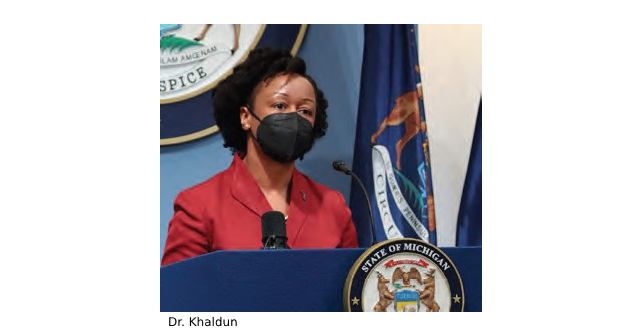
DR. KHALDUN: I think that progress is not linear. Do I believe that as a country we are in a better place than we were 100 years ago or 50 years ago? Absolutely. There’s no question. Think about my 97-year-old grandmother, who just passed away recently, may she rest in peace. She was orphaned at 6, lost both of her parents and was raised by her 11 siblings. She talked to me a lot about picking cotton. She never got past 6th grade, and you know, she came to Detroit for a better life with one of her older siblings, and she walked miles to clean other people’s homes and take care of their children while she had her own children at home. That’s the opportunity that she had, and she managed. I forgot how much it was, but somebody gave her and my grandfather a small amount of money to buy their house in an all-white neighborhood in Detroit. She made a life for herself there, and I’m benefiting from her hard work. My life will never be as challenging as hers was.
Explore This Issue
ACEP Now: Vol 43 – No 10 – October 2024Have we made progress? Absolutely. But like I said, progress is not linear. If you look back through history, there have always been ebbs and flows. This work of health equity, the core work of it, is not new. It has been around for decades. Now it’s called different things, right? I think progress has been made. I think the challenge is to get beyond, as a society, the rhetoric and speeches. How do we get to the point where you embed that health equity lens into how you make decisions, how you look at data, how your policies impact people who might have been left behind. But I’m optimistic that there are many people, a lot of expertise, a lot of folks who want to do this work well. We just have to kind of stay the course and do the work.
DR. TERRY: There are people, some of whom are colleagues, suggest that health equity and focusing on things like social determinants of health are not in our lane as physicians – that we should just focus on the Science of medicine, the pathophysiology – taking care of patients in that way and leave the rest up the social workers or community activists. What would your response be to that?
Dr. KHALDUN: Everyone has their own reason for why they went into medicine or emergency medicine. I don’t pretend to speak for everyone. But I know I certainly went into medicine because I wanted to help people be healthier. We know that most things that make people unhealthy have nothing to do with what we do inside the walls of an emergency department. And we also know that for many of our patients, especially as emergency physicians, we are the only touch point. And there are all kinds of reasons for that. It’s not ideal, but it’s a fact. For many of our patients, the health care system has failed them.
Pages: 1 2 3 4 5 | Single Page




No Responses to “This Emergency Physician Leader Works on Patients and Policy”